In co-operation with Sambla
Is it easier to pay by card or cash abroad? What should you consider when paying by card... and should you exchange cash before travelling or not? These types of questions are fairly common in various travel forums, so we thought we'd set the record straight and share our thoughts.
Table of contents
Can I use my card abroad?
Today, card payments work in many parts of the world, although not always to the same extent as in Sweden. In some countries, cards may only be accepted in fine hotels and restaurants and in larger retail chains. If you are in a large city, it is usually relatively easy to find an ATM to withdraw money, but in the countryside and small villages it can be difficult.
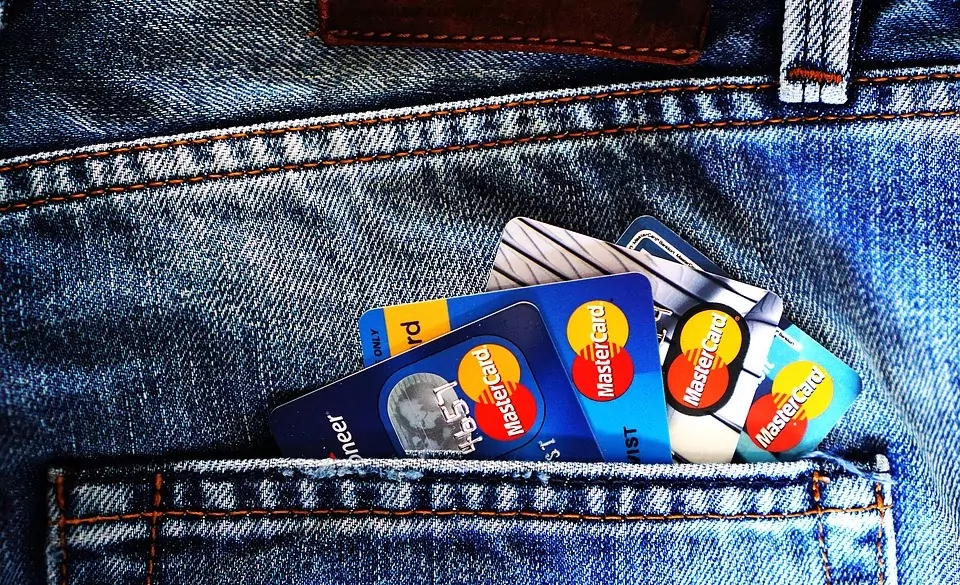
Does it cost money to use the card abroad?
Charges may apply when you use your card abroad. When you pay by card, you may have to choose whether to pay the amount in Swedish kronor (SEK) or in the local currency of the country. Always choose the country's local currency! The companies have a free hand in setting the exchange rate, so it will probably be more expensive if you choose to pay in Swedish kronor.
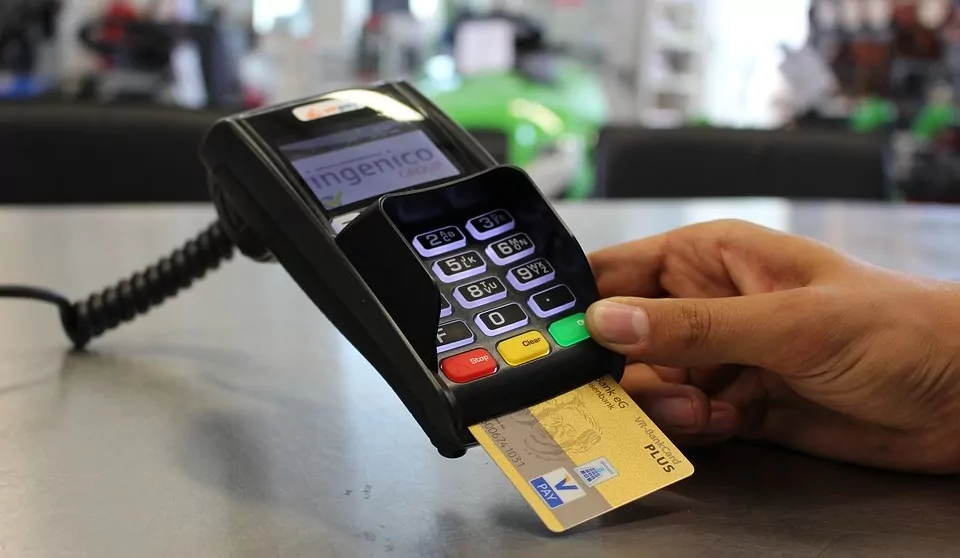
Should I exchange cash before travelling?
Although there may be a fee for using your card abroad, there is no benefit to exchanging cash before travelling. The cost of using your card abroad depends on the issuing bank but (according to the Visa Europe FX consumer cost analysis report) is almost always lower than exchanging money at exchange offices in cities and airports.
However, if you think you will need cash when you arrive, it can be useful to exchange a small amount in advance. Check the FOREX website for more information on currencies in different countries.
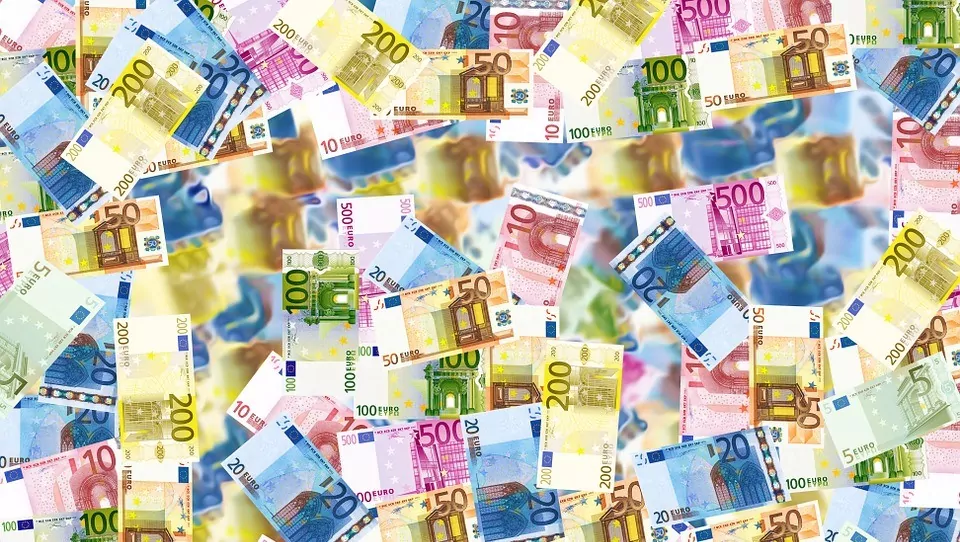
How do I reduce the risk of robbery and skimming?
Of course, you can never fully protect yourself against crime, but you can significantly reduce the risk. You can also make sure you have a good backup in case of an accident. Here are some tips:
- Keep your card locked for international payments when you are not abroad and keep it locked for online purchases when you are not shopping online.
- Use a credit card, or a card that you don't have too much money on. Bring equipment so that you can transfer more money as you go along.
- Be careful with the code - make sure nobody sees you enter it and never keep it near the card.
- Make sure you know where the blocking number is, so you can quickly block the card if you lose it.
- Carry more than one card when travelling and keep them in different places. This is good in case one is stolen, but an extra card is also good if one fails.
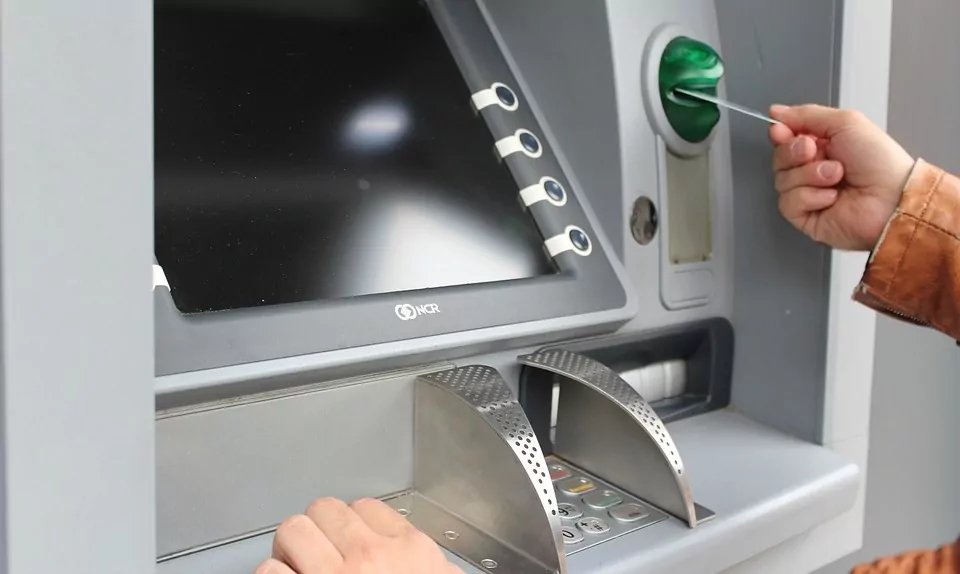
Our worst money experiences while travelling
We have travelled a lot, in more than 45 countries on five different continents. So what have we been through? Seriously, not much!
- In Zanzibar in 2007/2008 we realised too late that there were only a single cash machine on the entire island, and it was a very long car journey to get there.
- In Yalta, Ukraine, in 2008, we were unable to withdraw from an ATM. Instead, we had to go to the bank where we were able to withdraw cash in thick bundles wrapped in brown paper.
- In Malta in 2017, Peter thought that he lost your credit card and we had to immobilise it. The next day it was found in a car we had travelled in ...
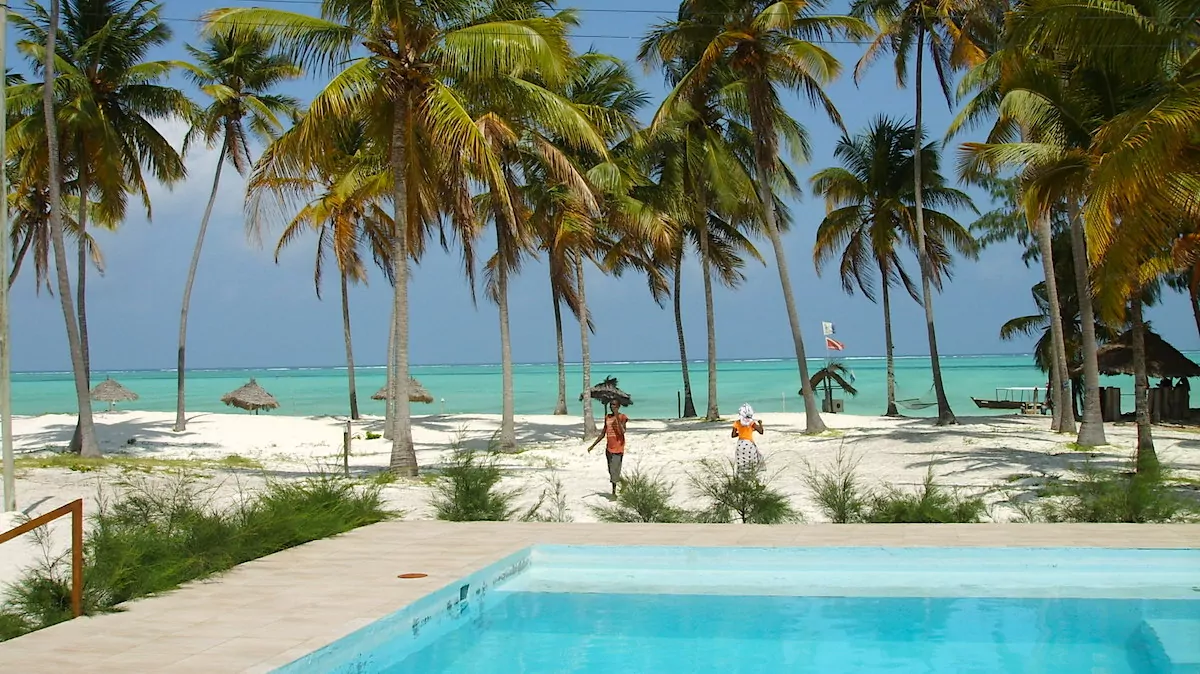
More tips?
In addition to knowing how to manage your money while travelling, it is of course good to keep track of your own finances. It's always best to save up for the trip before you leave, and if you need to borrow money for any reason, it's important to check the conditions. The company Sambla has an online service where you can compare offers from banks and lenders free of charge.
Please also read our article How to afford to travel - follow these 10 steps if you want to travel (more). What are your best tips for managing money, cards and finances while travelling? Have you experienced anything interesting (or unpleasant) regarding money while travelling?
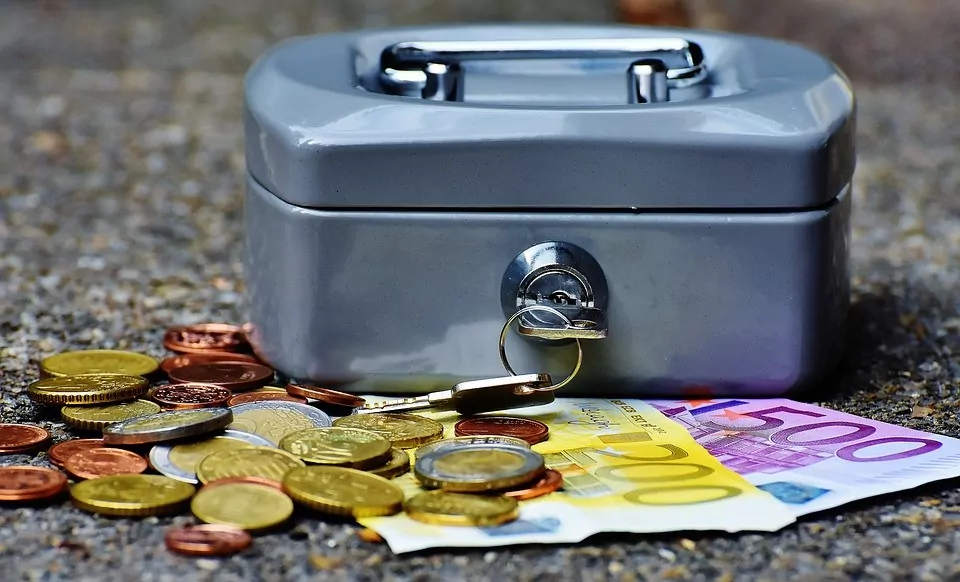


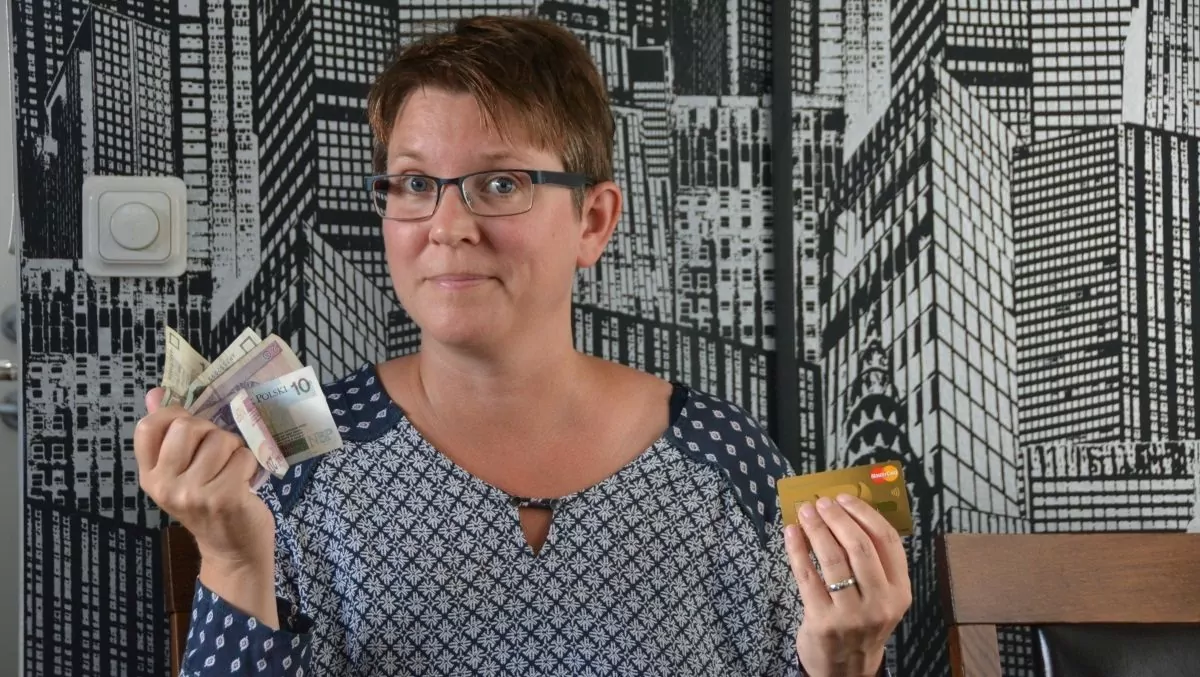






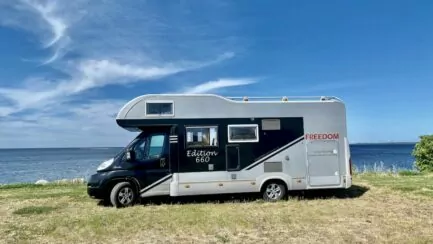

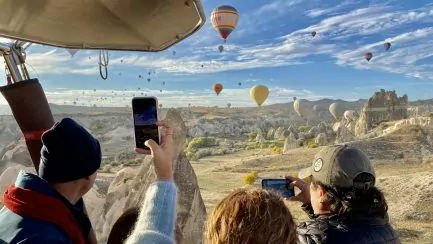
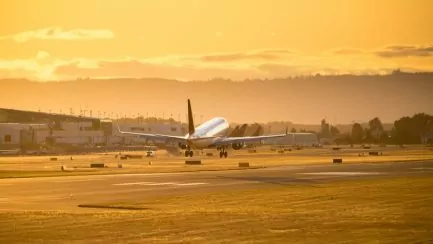




Lennart says:
Cards are the best and always work, at least in the EU.
06 August 2017 - 7:38
Helena says:
I don't agree that cards always work (not on campsites in Poland, for example... ;)), but we also use the card as a basis!
06 August 2017 - 11:42
Matts Torebring says:
Certainly the card is preferable. Nevertheless, we have always carried a cash box in €, when travelling in Europe... We have come to "toll stations" on the autobahn, where our cards did not work. In France it can be a lot of money. A baguette for breakfast that costs 1 €, goes faster in the queue with cash.
We always try to choose ATMs on campsites or at a bank. We always check beforehand if there is anything positive or negative in the neighbourhood. At least 5 or 6 times we have not been able to get the card out of the machine without outside help. Then I get sweaty. If you are at a campsite, you get safe help.
In this context, I would like to add Lasse Kronér's words about our new Swedish coins: "I feel like an 80-year-old". You almost need a magnifying glass or extra good eyes to be able to tell them apart. There can only be one reason why we got these: We are not going to use them, but only pay by card!
06 August 2017 - 8:02
Helena says:
Of course, it can be handy to have some money in cash. When we travelled in Poland and the Czech Republic, it was a necessity! We often take out on the spot instead of in advance, but sometimes you can need some money right away. Interesting what you write about the coins. I see that more people have written about the same thing. I haven't thought about it (I can see well at close range, but poorly at a distance) but it feels ill-considered and not like good accessibility.
06 August 2017 - 11:45
Mr Frank Olsen says:
Cards are certainly best, yes. But one thing to be aware of when withdrawing cash from an ATM is that the local bank will try to "trick" you into accepting a much worse exchange rate than the official rate. You will usually be asked to accept a fixed rate, such as 1035 kroner for 100 euros, or a floating rate which will be fixed later but cannot be guaranteed. You should always refuse such a guaranteed exchange rate; it is invariably 8-10 % more expensive than the floating rate.
06 August 2017 - 8:17
Helena says:
Thanks for the additional tips Frank! It's really a lot to think about, and really great when everyone contributes their tips and experiences. It's unnecessary for the trip to be more expensive than necessary because of bad exchange rates ...
06 August 2017 - 11:47
Kate says:
Thanks for the great tips!
Wishing you a great Sunday, hugs Kate
06 August 2017 - 9:56
Helena says:
Thank you very much Kate!
06 August 2017 - 11:47
Johnny Friskilä says:
Well, it all depends on which country you are travelling to. Oh what problems there have been when travellers have not known before that in Uzbekistan, for example, cash is the rule. No matter where I go, I keep two cards and cash, a small amount of local money if possible and otherwise cancelled euro or dollar bills in different denominations. Greetings from the airport in Munich here I sit with two cards and euro notes. 🙂
06 August 2017 - 10:14
Helena says:
Oh how interesting to hear about your experiences Johnny! Yes, it is certainly different in different countries. It sounds like you are guarding yourself well 🙂 I didn't write about bringing cash in other strong currencies, but it can be good in some countries.
06 August 2017 - 11:49
Ditte says:
Generally speaking, it is expensive to exchange money at FOREX, as they are supposed to make money, but sometimes it is wise to withdraw cash before travelling as cards are not always accepted. Bringing euros or dollars is often a good idea as these can usually be exchanged for local currency on the spot. We always have cards and different ones and we always use credit cards while travelling and even on them we have a limit and if we want to exceed it we have to unlock the cards with a code. Good if the cards get lost ...
06 August 2017 - 10:23
Helena says:
I agree that it is sometimes useful to carry some cash, especially in countries where cards are less accepted. Cards in other strong currencies can also be useful in some countries.
06 August 2017 - 21:05
Goatfish says:
Thank you for a great post with tips and experiences 😀.
I use the card (always carry two) most of the time and have a small cash balance. Agree with the person who wrote about petty cash. The new coins are worthless, I have trouble seeing the numbers.
Skyline Sunday hug!
06 August 2017 - 10:26
Helena says:
Interesting that several people mention this with the new coins. I haven't thought about it, but it seems particularly stupid that they have been made so that it is difficult to see!
06 August 2017 - 21:06
Husis blog says:
This was an exciting post from you as the owners were having these problems. Before travelling, they had exchanged a few different currencies at home in Sweden to cover the essentials in Denmark and Germany. In Denmark it was no problem at all to pay by card so the money was more than enough. Germany doesn't have quite the same attitude towards cards and it has only been larger shops or a few restaurants that have taken cards. So there the owners had to find an ATM to withdraw more money. The owners should probably have "checked" the situation a bit more before travelling.
Owners usually change a small amount of money if they are going abroad and then make do with the card.
06 August 2017 - 10:39
Helena says:
I understand that cards work well in Denmark, but it's true that they don't always work as well in Europe. You can withdraw money on the spot, but you have to be careful when you're in a city. If you are in the countryside, it may not be so easy ...
06 August 2017 - 21:07
Mr Steve says:
"cash in thick bundles wrapped in brown paper". That sounds a bit dodgy.
06 August 2017 - 10:44
Helena says:
Haha, yes, it felt a bit shady. And then it was still inside a real bank ...
06 August 2017 - 21:08
Chipping says:
Keep an extra "fake" wallet with old cards "membership cards" and some money in it and the thief will be satisfied in case of a robbery.
06 August 2017 - 14:44
Helena says:
Yes, I have heard that tip, and I can imagine that it can work! I myself have never done that, but it's probably mostly because it felt a bit too cumbersome ... It certainly depends on a bit where you are travelling too, how much security thinking you think is needed.
06 August 2017 - 21:09
Role o Carina says:
We use a great card with no fees! Perfect 🙂
And we have some loose banknotes with us.....
06 August 2017 - 17:17
Helena says:
Having a card with no fees is perfect! But you can't escape the fact that other banks charge fees, can you?
06 August 2017 - 21:10
Petra says:
Rarely use cash sometimes to pay for taxi journeys if they don't take cards... Being a really "short" person works well in all the countries I have been to 🙂.
06 August 2017 - 18:16
Helena says:
I also like cards, but in a lot of countries it is difficult. In Poland and Czech Republic it was not possible to pay a single campsite by card... 😉.
06 August 2017 - 21:11
Lisa in the village says:
Lots to think about and observe.
06 August 2017 - 18:47
BP says:
Here I have learnt something new again - to always choose the country's local currency, which I have not done so far. I also did not know that the card has a blocking number, but of course I have the phone number of my credit card provider where I could block the card when I was robbed in Benidorm in December 2014. I have blogged about that. Then it was good that my husband also had his card with him, we always have two cards with us. Likewise, we always have cash on us, as Spain is one of the countries where cards are really not often used.
06 August 2017 - 20:30
Helena says:
Choosing the local currency is good, it should be less costly. As for the blocking number, I was probably unclear ... I just meant the phone number to block the card, which you obviously already know! And yes, when you have to block one card, you realise how good it is to have at least two!
06 August 2017 - 21:13
Mr Börje Börman says:
When you put money into an ATM and receive a credit card in return, you should bear in mind that something may have gone wrong.
06 August 2017 - 20:57
Emma, sun like sun? says:
Have also written about the idea of always using the local currency. I've even done my own experiments about it.
Sometimes you see people write that they have such a good card that does not cost extra to withdraw, to use, etc. Unfortunately, this is not the whole truth. What company lets someone do something without charging for it in one way or another? For example, the free cards often have a worse exchange rate.
In Spain it does NOT work to have a weekday without cash. I don't think it works to have a holiday without cash in Spain either. Many places do not have card payment so you have to check before you sit down and order food or ice cream.
Spreading the risks is good. Don't carry all your credit cards, don't keep them in one place. For example, I don't like to carry my husband's wallet in my handbag (because he has bad pockets in his shorts) because then we lose everything in case of an accident.
06 August 2017 - 21:11
Helena says:
Interesting about the cards! I'm not familiar with all the variants, but as you say, rarely is anything completely free ... I agree that in many countries in Europe it is not possible to be without cash. However, you don't need to exchange large sums at home, but can withdraw from ATMs on site. But of course, you have to be careful not to suddenly find yourself in the countryside without cash! When it comes to spreading the risks, we think just like you. You can lose one card and block it, but if you lose all your cards, it will be very difficult ...
06 August 2017 - 21:17
Ruth in Virginia says:
A bit late with my post. Have had some problems, like when we
in Scotland about 30 years ago. We got out into the countryside and
most small hotels do not take credit cards. In one place where it was
critical that we would be able to pay by traveller's cheque, because we would have to
a ferry to the Isle of Mull, the only place where there was a bank, wanted to
the hostess would not accept a traveller's cheque. We did not have enough for the ferry, which took only cash. Luckily, an English couple were also guests, and
the guy was nice enough to bank for us. But it was close.
The second time was in 1973, when I, my 11-year-old son and his friend "travelled by train" from Amsterdam to Sweden via Austria, Germany and Denmark.
Had train tickets OK, but travellers' cheques and cash were running out.
Won some small amounts of money at Tivoli in Copenhagen, from where we took the train to
Norrköping. The train slowed down in Nkpg but did not stop. Asked
the conductor why. Well, we had entered the wrong carriage, so in the middle of the night we found ourselves
we were in Södertälje and no money for a return ticket. He was kind enough
and printed out tickets for us to Beijing free of charge. The worst thing was, that
my sweet Aunt Gurli was at the station waiting for us. No one
cell phone at that time. It worked out anyway, and Aunty lent me
money, so I could get home to Ludvika.
07 August 2017 - 5:13
Helena says:
Thank you for sharing your stories Ruth! But ... Beijing? Guess it got a little wrong there, very generous of the conductor otherwise 😉 And travel cheques, I actually remember that. I had them with me when I travelled by train as a young man 🙂.
07 August 2017 - 8:07
Mr Nils-Åke Hansson says:
We use cards for refuelling and shopping. But always have cash for smaller transactions and amounts. We have been out for dodgy things but it has always worked out. The biggest we bought a camera in a shop in Benidorm but when we had paid the problem arose. There was no one we could get. Train a few hours and we had the money back.
07 August 2017 - 9:19
Helena says:
It can be handy to have cash for smaller amounts, and good if they don't take cards in smaller shops. Good thing it worked out with the camera!
07 August 2017 - 16:58